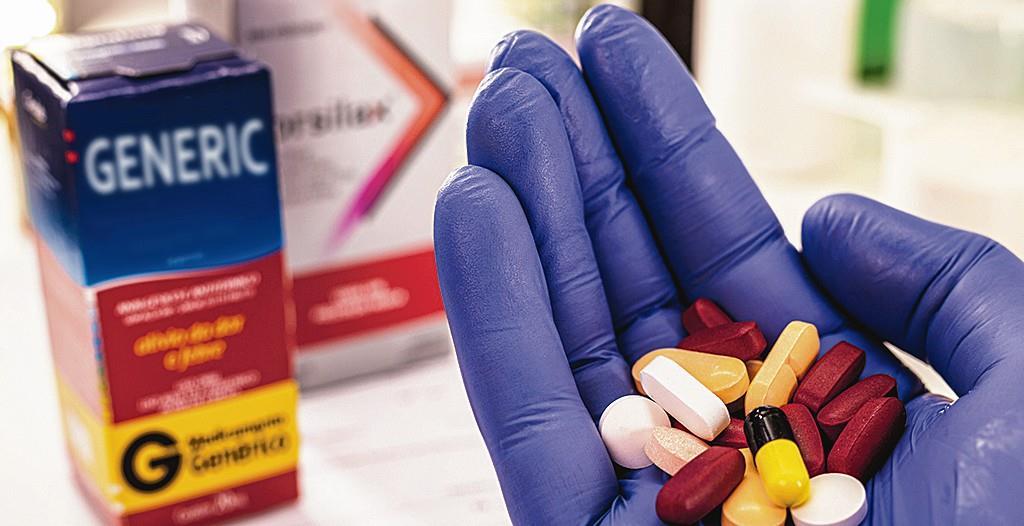
Ministry of Health and Family Welfare Introduces Draft Bill to Prohibit Prescription of Branded Medicines
In a significant move aimed at curbing the unethical nexus between pharmaceutical companies and medical professionals, the Ministry of Health and Family Welfare has introduced a draft bill that will prohibit doctors from prescribing branded medicines. Instead, doctors will be mandated to prescribe medications using the generic name of the active ingredient, commonly referred to as the salt.
The Issue at Hand
The practice of prescribing branded medicines has long been a subject of concern. Pharmaceutical companies often establish relationships with doctors, encouraging them to prescribe their branded drugs. These branded medications, while containing the same active ingredients as their generic counterparts, are sold at significantly higher prices. In many cases, the price difference can be as much as 50 to 60 times higher.
This practice not only places a financial burden on patients but also undermines the trust in the medical profession. Patients, already vulnerable due to their health conditions, find themselves forced to pay exorbitant prices for medicines they could otherwise obtain much cheaper. The underlying problem is the monetary incentive for doctors to prescribe these branded drugs, driven by incentives and benefits from pharmaceutical companies.
The Proposed Bill
The draft bill, set to be tabled in the Lok Sabha during the July 2024 session of Parliament, aims to put an end to this malpractice. The key provisions of the bill include:
-
Mandatory Prescription of Generic Names: Doctors will be required to write prescriptions using the generic names of drugs rather than brand names.
-
Regulatory Oversight: Enhanced oversight and monitoring mechanisms to ensure compliance with the new regulations.
-
Penalties for Non-Compliance: Strict penalties for medical professionals who fail to adhere to the guidelines, ensuring accountability and enforcement.
Addressing Corruption in Healthcare
The introduction of this bill is a commendable step towards addressing corruption within the healthcare system. The unethical alliance between some doctors and pharmaceutical companies has led to an environment where patient welfare is often secondary to financial gain. By eliminating the incentive to prescribe expensive branded drugs, the bill seeks to restore the focus on patient care and affordability.
Moreover, the bill aims to level the playing field for all patients, ensuring that high-quality healthcare is accessible regardless of economic status. Generic medicines, being significantly cheaper, will make essential drugs affordable for a larger section of the population.
Benefits of the New Law
Cost Savings for Patients: The primary benefit will be the reduction in medical expenses for patients. With doctors prescribing generic drugs, patients can expect substantial savings on their medication bills.
Improved Trust in Healthcare: The law will help rebuild trust in the medical profession, reassuring patients that their health is the primary concern of their doctors, not financial gain.
Encouragement of Ethical Practices: By removing financial incentives tied to branded prescriptions, the bill promotes ethical practices within the medical community.
Increased Access to Medicines: Cheaper generic drugs mean more people can afford the medications they need, improving overall public health outcomes.
A Step Towards Equitable Healthcare
The draft bill is a progressive step towards equitable healthcare in India. It addresses a deeply rooted issue that has long plagued the healthcare system, prioritizing patient welfare and affordability. The Ministry of Health and Family Welfare’s initiative is a welcome move, reflecting a commitment to tackling corruption and ensuring that no patient is exploited due to unethical medical practices.
As the bill moves through Parliament, it is essential for all stakeholders, including medical professionals, patients, and policymakers, to support this initiative. The successful implementation of this law will mark a significant milestone in the journey towards a more transparent, ethical, and patient-centric healthcare system in India.
National Medical Commission (NMC) existing regulations
In August 2023, the National Medical Commission (NMC) issued new regulations requiring doctors to prescribe generic medicines or face disciplinary action, which could include suspension of their practice licenses. The NMC’s guidelines emphasize that prescriptions should be written clearly and follow a specific format. Doctors are instructed to prescribe only generic medicines that are readily available and to encourage hospitals and pharmacies to stock these drugs.
Additionally, doctors are encouraged to direct patients to buy medicines from government-run Jan Aushadhi Kendras and other generic pharmacies. The NMC also urges doctors to educate patients and medical students about the benefits and equivalence of generic medicines compared to branded ones. According to the NMC, generic medicines are 30 to 80% cheaper than branded drugs, and prescribing them can significantly reduce healthcare costs and improve access to quality care.

